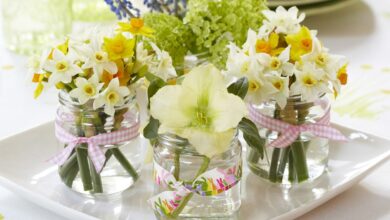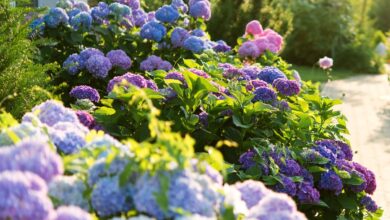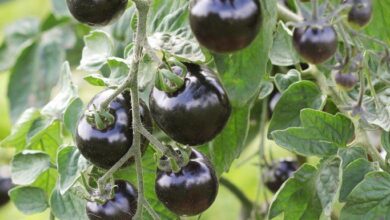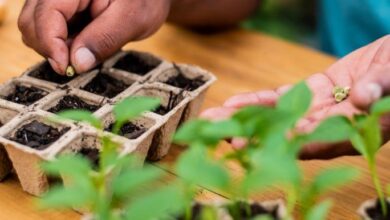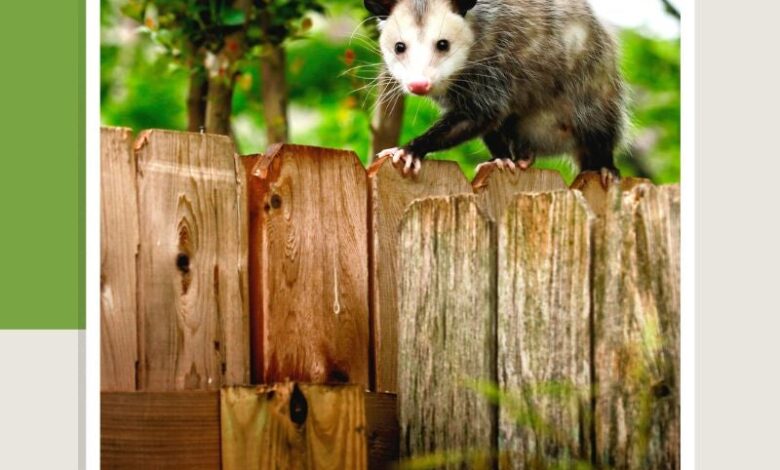
My Wildlife Friendly Self-Sufficient Home Garden
[ad_1]
I like for my garden to be as natural and sustainable as possible. This means I don’t use harmful chemicals, I don’t over prune, and I don’t use a lot of high maintenance plants. Instead, I choose native and other low maintenance plants, I amend the soil with compost and use natural mulch, I welcome pollinators and other beneficial insects, I invite wildlife to the garden, I reuse whatever I can, and I even take advantage of the uses many weeds offer. In essence, growing a sustainable garden should benefit everyone, and thus far mine does.
My Self-Sufficient Home Garden
I’ve been sustainable gardening for years without even realizing it or trying that hard. And I’ll be honest, as much as I love gardening, I’m a bit on the lazy side when it comes to maintenance. I’d rather do the whole plant and forget it thing (except for the initial watering until established) rather than spend my days constantly watering, feeding, pruning, or weeding everything. I don’t want to focus all my time worrying about pests either. I just let the garden go and do its own thing, which I know it will. It’s organized chaos and fits my personality well.
The soil gets replenished with composted leaf mulch each year and there’s plenty of earthworms and microorganisms in there doing their thing. The plants don’t need much work to stay healthy, other than some occasional pruning and deadheading. I divide overcrowded perennials when needed, which go to family, friends or other garden areas. I do pluck weeds now and then, but I’m not as concerned about it as I used to be. Many, like dandelions, chickweed, and plantain, are beneficial in some way. I try to take advantage of that, so they’re now welcome. Pollinators love the flowers, and there are many. In return I’m blessed with fruitful veggie harvests. Having a wildlife garden keeps the animals just as happy so the rabbits, raccoons and other hungry critters are less likely to gorge on my stuff – they have their own. I may suffer a few losses but not enough to bother me.
There are a number of plants I grow strictly for beneficial insects. There’s milkweed for monarchs passing through and butterfly weed for others. My neighbor has a row of butterfly bushes that adjoins my garden too. I grow extra parsley and fennel because I know swallowtail butterflies will lay eggs and need something for the young caterpillars to feed on. Ladybugs also enjoy the fennel as well as my dill and yarrow plants. Happy to say that aphids aren’t much of an issue, and if they do pop up there’s a nice ladybug population to take care of them. You can find soldier beetles, pirate bugs, lacewings, hover flies, assassin bugs and ground beetles here too. All serve a beneficial purpose in the garden.
While the presence of a praying mantis in the garden may be questionable to some people, since the insects feed on beneficials as well as bad bugs, I enjoy having them around (I talk to them too). Sure, there will be some insect losses, but this is how the circle of life works. Said praying mantis might become prey to something else, like a bird flying by or even a garden snake. Even though I hate and fear spiders, they too have a place in the garden. Every year there’s at least one or two writing (zipper) spiders hanging out and helping with pest control. Toads and lizards snack on insects, as do the bats that devour many bad bugs at night, especially pesky mosquitoes. All these small creatures play an important role in keeping my garden healthy and sustainable. This includes the larger ones too, believe it or not. Did you know, for instance, that opossums feed on ticks or that hawks and owls are great for rodent control (snakes too)?
Most people wouldn’t consider tent worms beneficial, and for the most part they’re not, but in my garden these caterpillars are welcome. I have wild black cherry trees in the wildlife garden for a reason. The fruit is a favorite to many birds, and since these trees are common nesting sites for tent worms, the birds have another food source in spring as they wait for the cherries to ripen. I’ve watched as chickadees happily pluck the young caterpillars from their nest. And though in a sense it’s kind of sad, I remind myself that it’s all part of the circle of life. There’s still plenty of tent worm caterpillars to play with, but the birds help keep their numbers in check so the garden isn’t fazed by their presence. A win-win for me (and the kids).
Having a garden that can sustain itself makes life easier when you’re busy (or more on the lazy side like me). You’re able to enjoy the plants, the harvests, the pollinators, and even the wildlife with much less work. It also results in a healthier garden overall, and what could be better than that?
[ad_2]


